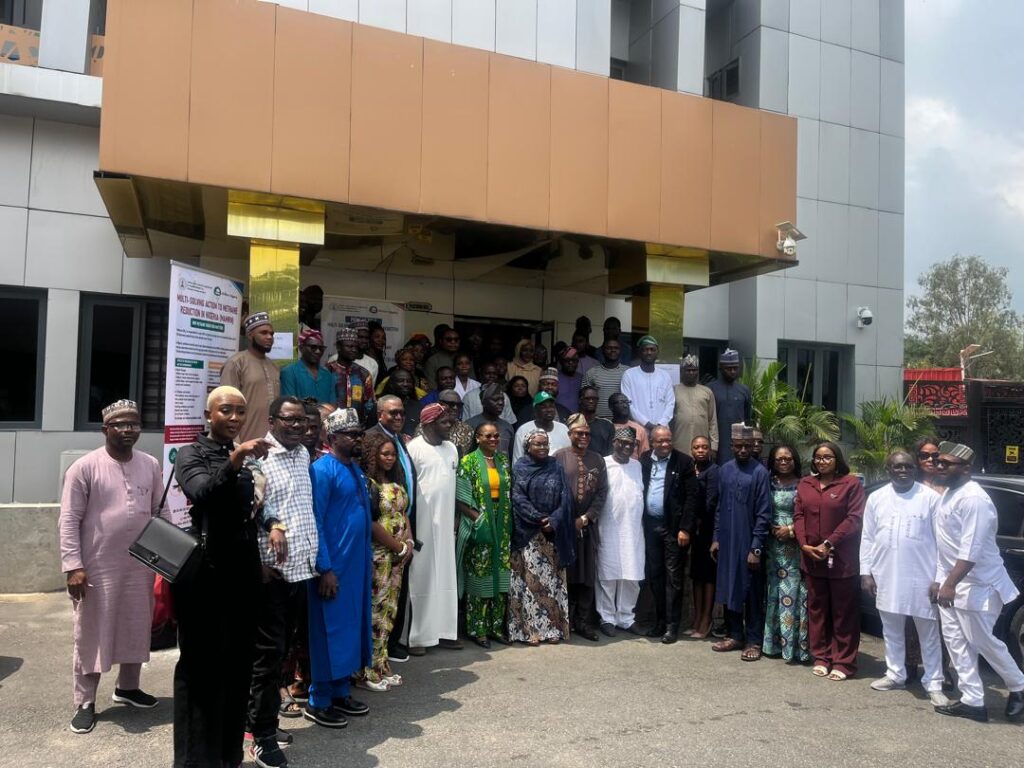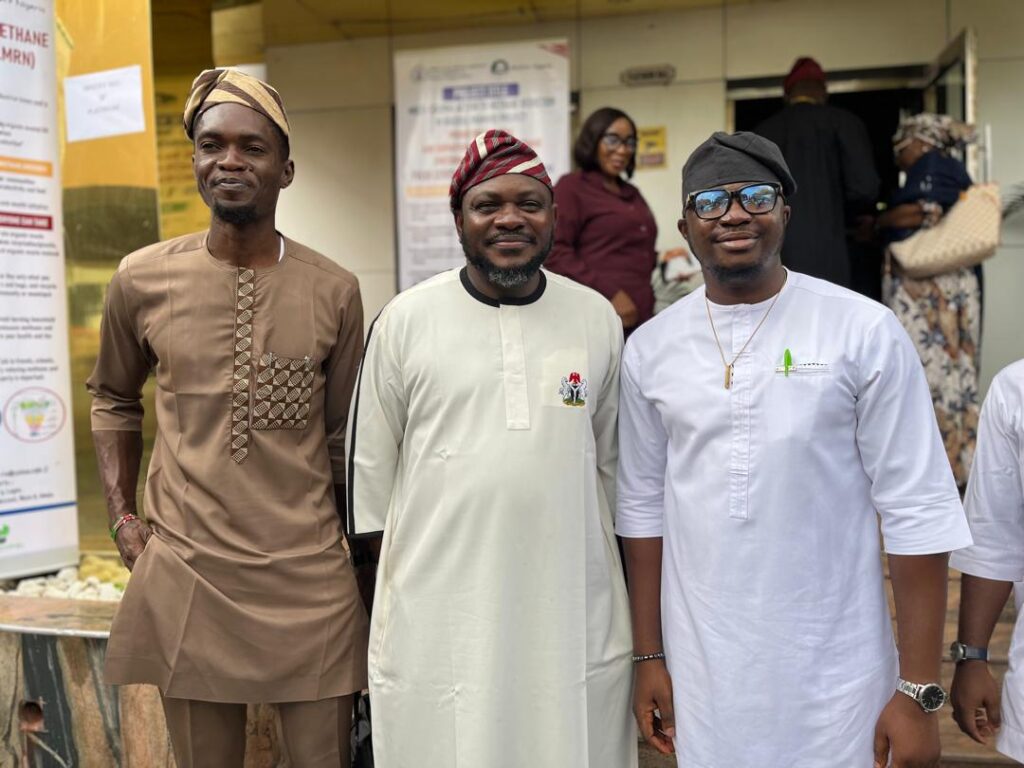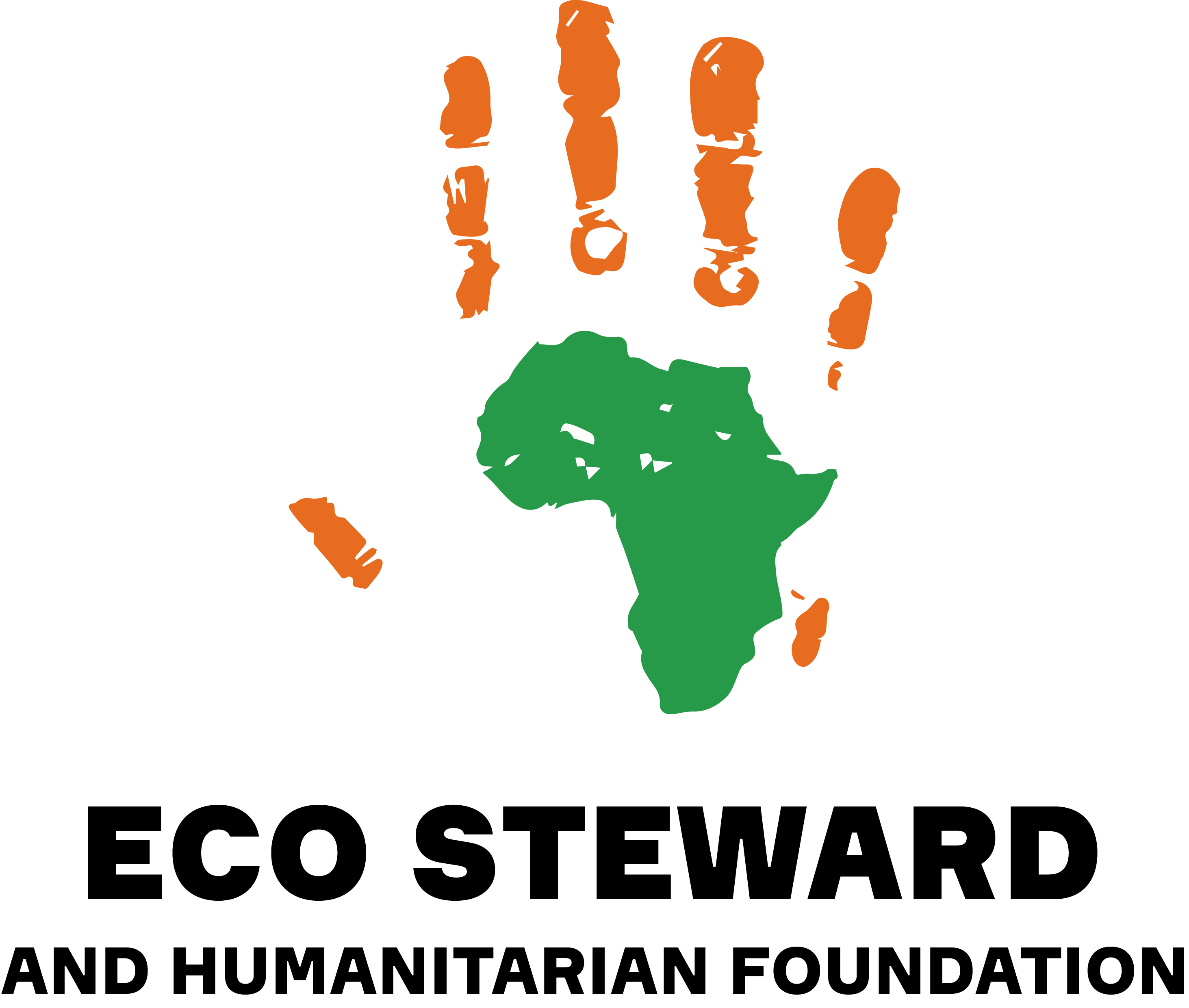
Cross-section of participants at the workshop
The Ecosteward Foundation joined other key stakeholders at a One-Day Workshop on Stakeholder Engagement on Data Mapping of Climate Actors and Inception Workshop on Methane Emission Reduction in Nigeria, held on Friday, October 24th, 2025, at K-Class Hotel, Wuse Zone 5, Abuja.
The event, organized by the Office of the Special Assistant to the President on Climate Change Matters in conjunction with SRADev Nigeria, brought together climate change experts, civil society organizations, policymakers, and development partners to deliberate on Nigeria’s strategy for methane emission reduction and to strengthen the data ecosystem for effective climate action.

Ecosteward team with Hon Yusuf Kelani (SA to the president on climate change matters)
Ecosteward Foundation was ably represented by Mr. Nweze Emmanuel, the organization’s Director of Programs, who emphasized the need for inclusive climate data management and multi-stakeholder collaboration in achieving Nigeria’s climate goals. He noted that methane, though short-lived, has a significant global warming potential and addressing it offers a quick win in reducing greenhouse gas emissions and protecting communities from escalating climate impacts.
During the workshop, participants examined existing data gaps, shared insights on effective methane management strategies, and explored opportunities for synergy among climate actors. The engagement also provided a platform to align national methane reduction efforts with Nigeria’s broader commitments under the Paris Agreement and Nationally Determined Contributions (NDCs).
Mr. Nweze reaffirmed Ecosteward Foundation’s commitment to promoting environmental sustainability, climate justice, and evidence-based advocacy for a low-carbon future. He stressed that bridging data and policy gaps remains central to achieving meaningful emission reductions and building resilient communities.
The workshop concluded with a call for stronger collaboration among government agencies, research institutions, and civil society organizations to enhance data transparency, improve policy coherence, and drive measurable progress toward methane mitigation in Nigeria.
